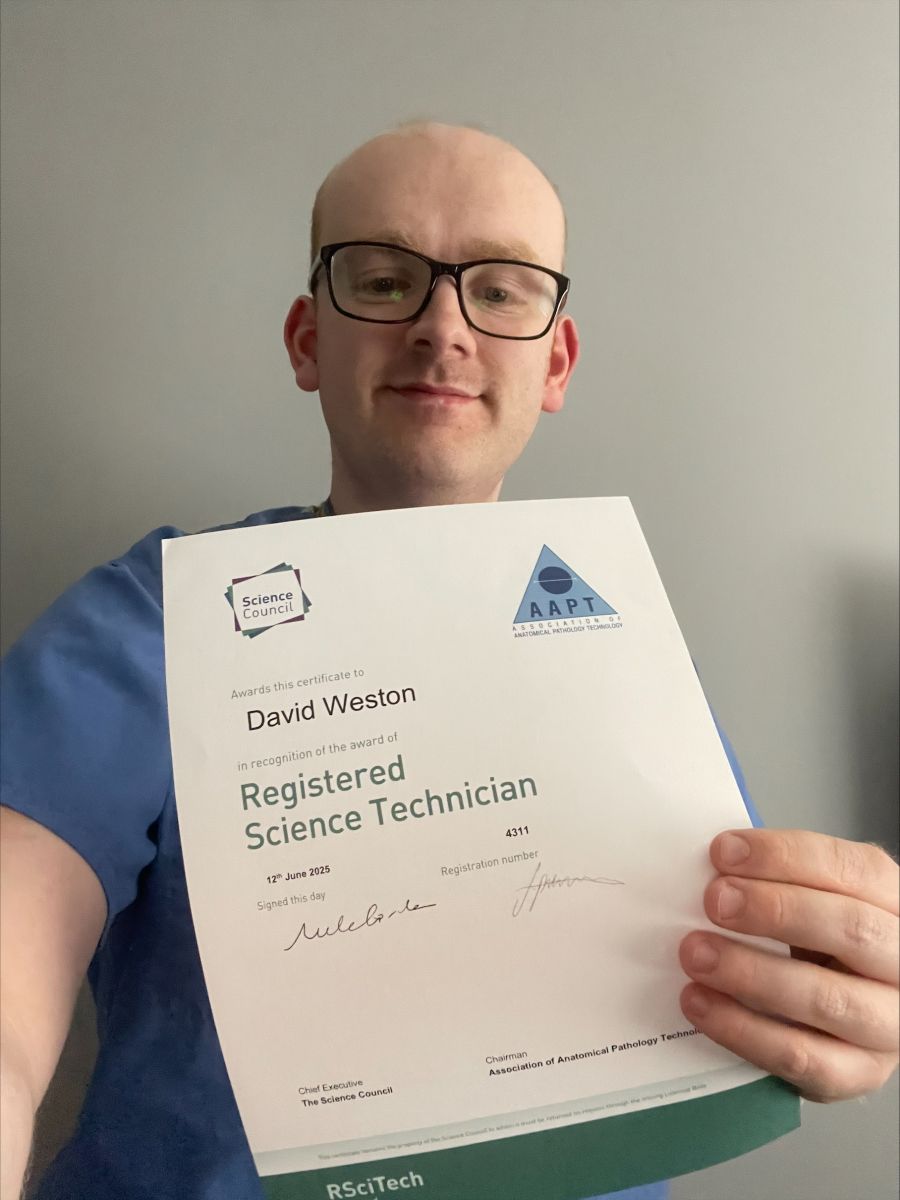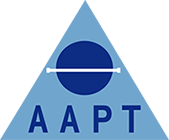News
David Weston achieves the Registered Science Technician award
David is the latest member to successfully apply via the shortened route with the AAPT

How did your professional experience prepare you for the shortened application process?
Working in the profession and being lucky enough to gain experience in a massively varied field taking in coroners work, police and forensic exposure as well as paediatric this gave me a base to answer what was needed. A lot of the standards are things that most people in the profession will do daily without even thinking about it!
Which part of the application was most challenging, and how did you address it?
Choosing the correct situations and experiences to meet the standards was tricky especially when it comes to explaining and proving them. I reflected back on actions I had taken and recalling exactly how I came to decisions, how I acted and how I take responsibility for the quality of my work in the framework of the standards - making things fit was quite difficult.
Sitting and focussing on what the standards are needing from you I made lists; what have I done on call, in the PM room, taking with bereaved relatives and what I took away from this I usually found something to demonstrate the standard for each section.
What advice would you give to others considering the shortened route?
Definitely grab the opportunity while you can, the shortened route is a massive asset and makes life so much easier.
That being said I'd say approach the task with an open mind, I tried my best to use CPD that I had already completed to give myself ideas, even using experiences such as working on call- lone working and being the person on the end of the phone gave me a lot of the ideas for situations to draw from.
How did you demonstrate the required competencies such as examples of problem-solving, safety and how you communicate with others?
For me demonstrating some of the competencies wasn't easy.
I had to take a look back at the finer details- the training we get to become APTs and the work we do give us most of what we need for this. For example, as APTs problem solving is something that becomes second nature; working alone, needing to be in two places at once, having strict time frames.
Safety examples can include working with trainees and making sure they're safe, in terms of communication, a professional approach with families in distress and making sure that when they're being swarmed with information that you're listening and communicating in a way that best supports them.
Pulling on my experiences I had to sit and justify why does this show the competencies and making sure you hit what it's actually asking for.
